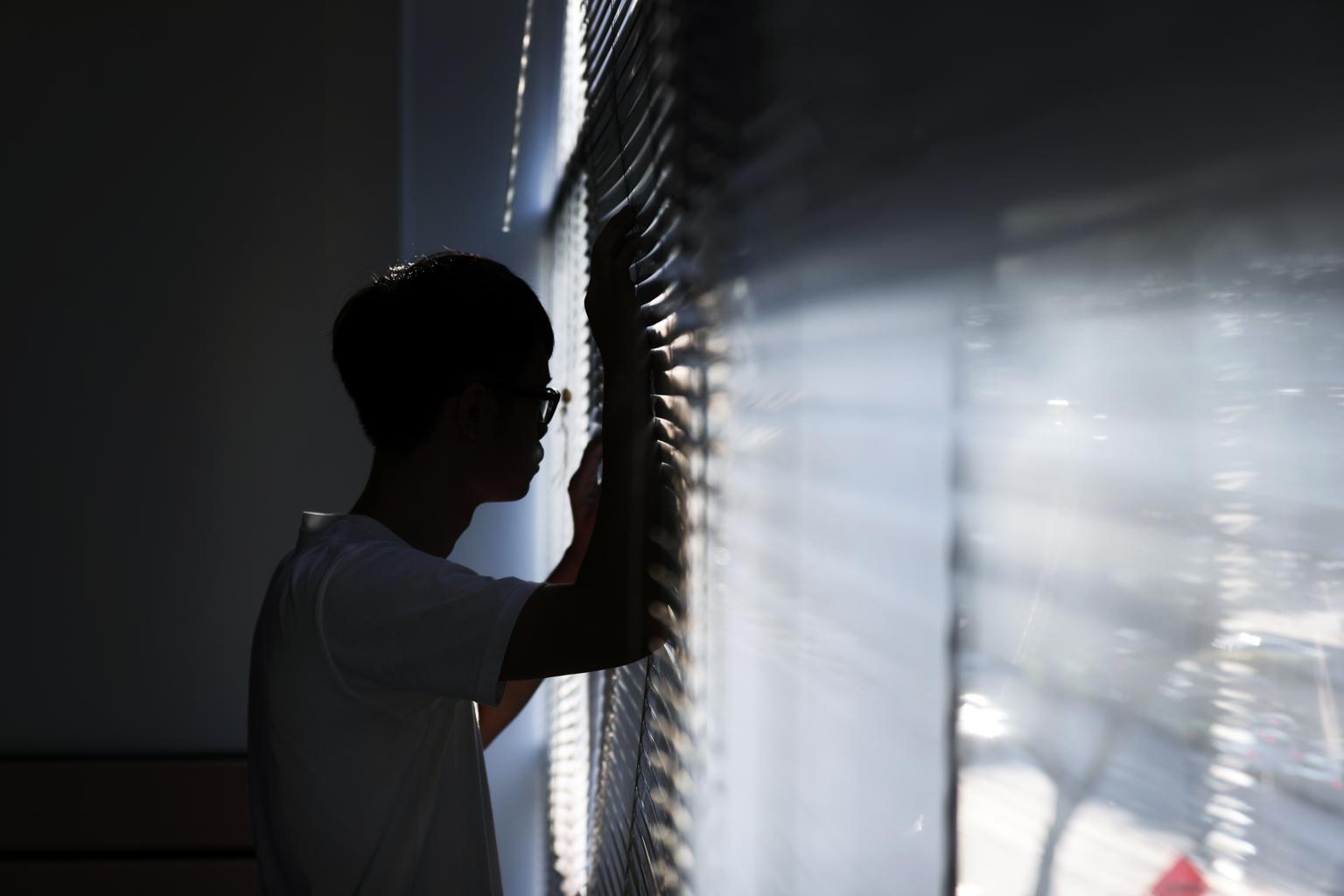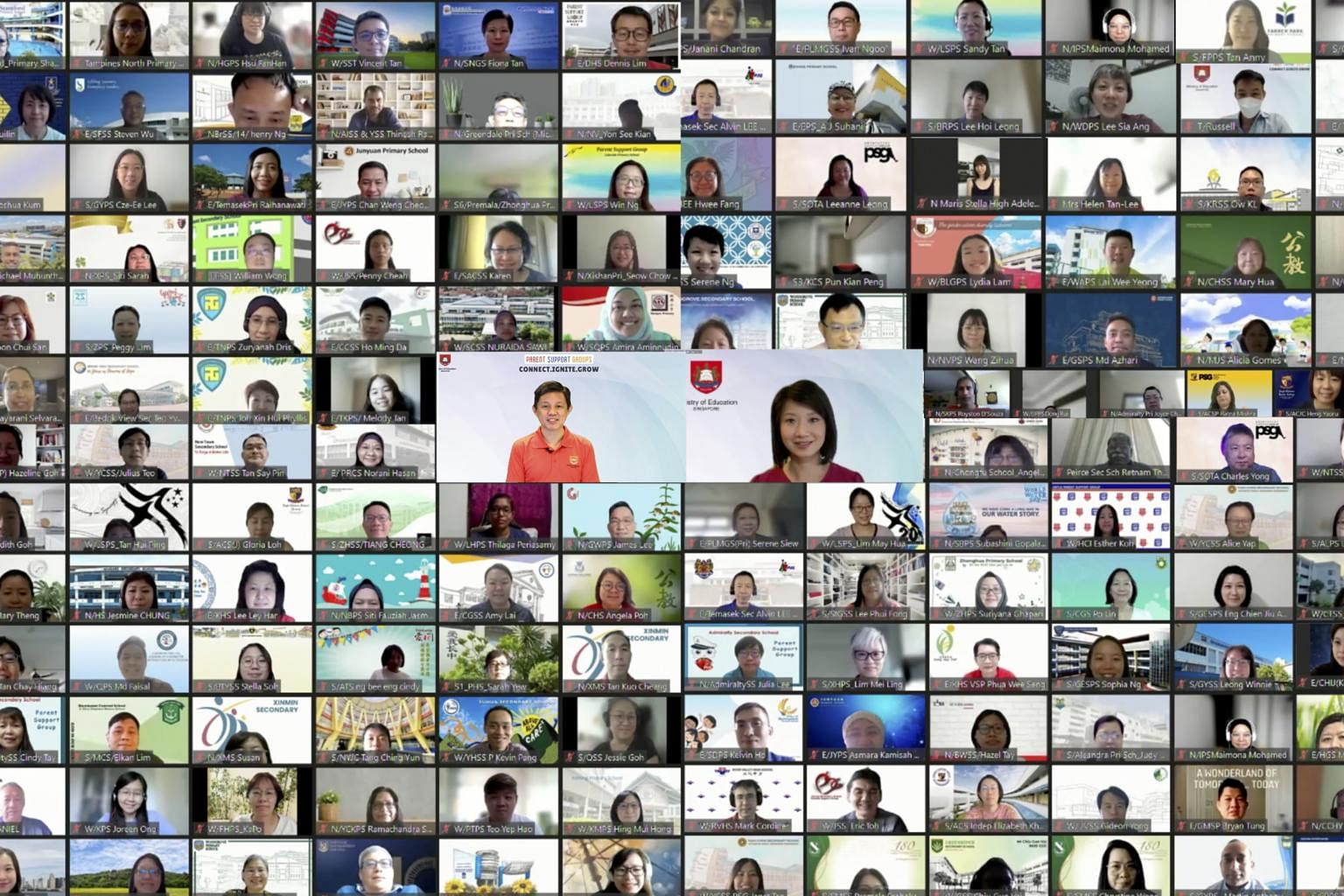Peer support for parents, children can destigmatise seeking help for mental health: Chan Chun Sing
Sign up now: Get tips on how to help your child succeed

Education Minister Chan Chun Sing called for parent support groups to help drive the conversation on mental health.
ST PHOTO: KELVIN CHNG
Follow topic:
SINGAPORE - Stress now is a way of life, and having more open, supportive conversations about mental health can help remove the stigma of seeking help for children or parents who are struggling to cope, said Education Minister Chan Chun Sing.
Speaking to parents and school staff over videoconferencing platform Zoom on Saturday (March 26), the minister said: "I think we all understand that the demands of a fast-paced, fast-evolving, fast-changing world are tremendous on all of us. The demands have increased, the expectations have increased.
"It's actually not possible... and not realistic for us to expect that we will live in a no-stress environment."
He called for parent support groups (PSGs) to help drive the conversation on mental health by sharing their own experiences and offer support to fellow parents, in the same way that students can rely on a peer support system.
PSGs are groups of parent volunteers who wish to take a more active role in their children's education. Each school has its own dedicated support group.
Mr Chan was speaking during an engagement session with more than 700 leaders of PSGs and school representatives from primary and secondary schools as well as junior colleges.
The minister said that it was important not to think about mental health in binary terms.
"There is no such thing as, 'I'm absolutely not okay', 'I'm absolutely okay' - we are all just in between the two extreme states...
He urged the mindset: "If I'm not okay today, I can seek help. I can perhaps strengthen myself through various self-coping mechanisms that I have learnt, then tomorrow will be better."
Minister of State for Education, and for Social and Family Development Sun Xueling, who also attended the session, reassured parents who might be concerned over whether their children would tarnish their record if they came forward to talk about mental health issues with a counsellor or psychiatrist.
"We will take the concerns of the student into consideration and see how we involve parents in the process."
At the session, the Ministry of Education (MOE) also launched a PSG guide compiling the experiences, tips and learning points from 25 PSGs, alongside a list of experts that parent volunteers can call depending on their needs.
She added that the Health Promotion Board's ongoing mental health campaign, It's Okay To Reach Out, seeks to assure all segments of the population that there are help channels available.
"What is important is that you reach out and there are appropriate channels to seek help on," Ms Sun said.

Mr Chan said: "The question is: How do we navigate this more stressful environment, both for our children and our parents... so that we can all grow together?
"I would just take a step aside and remind ourselves to think about and reflect: What does it mean for us to define success for our children, and perhaps even for ourselves?"
Mr Chan added that parents could help students understand and realise their potential, inculcate a lifelong attitude to keep surpassing themselves as well as for students to be globally connected, relevant and ready.
This view was echoed by Mr Lee Hoi Leong, a parent and PSG leader at Blangah Rise Primary who said that he was in favour of MOE's recent decision to remove mid-year examinations as well as promoting lifelong learning in schools.
Ms Priyata Nandi, a PSG leader at Bedok Green Primary, raised the question of how parent groups could help convince parents to speak to school counsellors in order to seek help.
She cited feedback from some parents on how they were more comfortable seeking help at private institutions rather than counsellors based in schools, as they were not sure that their data would be kept protected in the school setting.
Mr Chan responded that MOE does not keep any sensitive data about a student's medical or mental health.
He said: "If they (parents and students) really need to seek professional help, then I think the professionals and the clinicians will have a code of conduct as to how they manage the data so that it preserves the privacy of the individual without stigmatising them."
Helplines
• National Care Hotline:
1800-202-6868 (8am - 8pm)
Mental well-being
• Institute of Mental Health’s Mental Health Helpline:
6389-2222 (24 hours)
• Samaritans of Singapore:
1800-221-4444 (24 hours) /1-767 (24 hours)
• Singapore Association for Mental Health:
1800-283-7019
• Silver Ribbon Singapore:
6386-1928
• Tinkle Friend:
1800-274-4788 and www.tinklefriend.sg
• Community Health Assessment Team:
6493-6500/1 and www.chat.mentalhealth.sg
Counselling
• TOUCHline (Counselling):
1800-377-2252
• TOUCH Care Line (for seniors, caregivers):
6804-6555
• Care Corner Counselling Centre:
1800-353-5800
Online resources

